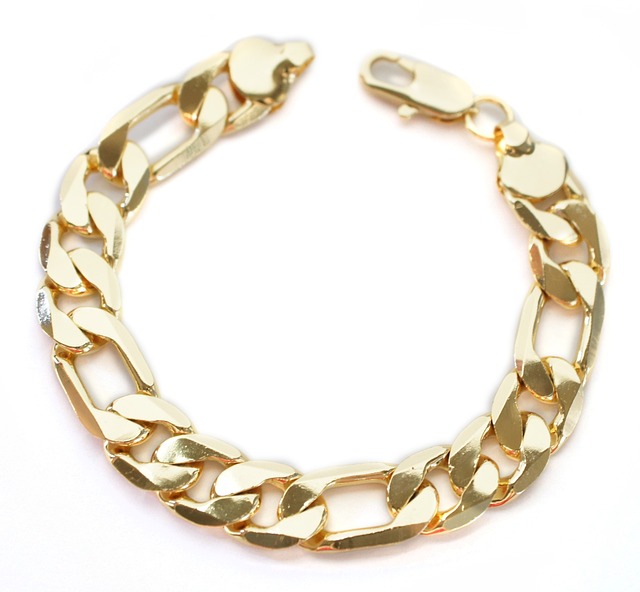Everything You Need To Know About Buying A Gold Bracelet - Discover Options And Prices
Gold bracelets represent timeless elegance and sophisticated style, making them popular choices for both everyday wear and special occasions. Whether you're purchasing your first piece or expanding an existing collection, understanding the various types, quality factors, and pricing considerations will help you make an informed decision. From classic chain styles to contemporary designs, the world of gold jewelry offers numerous options to suit different preferences and budgets.

Purchasing a gold bracelet involves more than simply choosing an attractive design. The investment requires careful consideration of multiple factors, including gold quality, craftsmanship, style preferences, and long-term value retention. Understanding these elements ensures you select a piece that meets both your aesthetic desires and practical requirements.
The Special Features of Gold Bracelets
Gold bracelets possess unique characteristics that distinguish them from other jewelry materials. Pure gold’s natural resistance to tarnishing and corrosion makes it an excellent choice for everyday wear. The metal’s malleability allows artisans to create intricate designs, from simple chains to elaborate patterns with gemstone settings.
The karat system determines gold purity, with 24-karat representing pure gold. However, pure gold’s softness makes it impractical for jewelry, leading to common alloys like 18-karat (75% gold), 14-karat (58.3% gold), and 10-karat (41.7% gold). Higher karat gold offers superior color richness and value retention, while lower karat options provide increased durability and affordability.
Gold Bracelet Options Available
The market offers diverse gold bracelet styles to suit various preferences and occasions. Chain bracelets remain popular, featuring designs like rope, box, curb, and figaro patterns. Tennis bracelets showcase continuous lines of diamonds or gemstones, perfect for formal occasions. Bangle bracelets provide solid, circular designs that slip over the wrist, available in both rigid and flexible variations.
Cuff bracelets offer adjustable options with open designs, allowing for comfortable fitting across different wrist sizes. Charm bracelets enable personalization through removable decorative elements, making them meaningful gift options. Link bracelets feature interconnected segments, often incorporating decorative elements or gemstones between links.
Understanding Gold Bracelet Prices
Gold bracelet pricing depends on several key factors. The current gold market price significantly influences costs, as precious metal values fluctuate daily. Weight plays a crucial role, with heavier pieces commanding higher prices due to increased gold content. Craftsmanship complexity affects pricing, as intricate designs require more labor and skill.
Brand reputation and retailer markup contribute to final prices. Designer pieces often carry premium pricing due to brand recognition and exclusive designs. Additional features like gemstone settings, engravings, or special finishes increase overall costs.
| Bracelet Type | Provider | Weight Range | Price Estimation |
|---|---|---|---|
| 14K Gold Chain | Argos | 5-15 grams | £200-£600 |
| 18K Tennis Bracelet | Ernest Jones | 10-25 grams | £800-£2,500 |
| Gold Bangle | H.Samuel | 8-20 grams | £300-£1,200 |
| Designer Cuff | Tiffany & Co | 15-30 grams | £1,500-£5,000 |
| Charm Bracelet | Pandora | 10-18 grams | £400-£1,800 |
Prices, rates, or cost estimates mentioned in this article are based on the latest available information but may change over time. Independent research is advised before making financial decisions.
Basics of Buying Jewelry Successfully
Successful gold bracelet purchases require careful planning and research. Establish a clear budget before shopping, considering both initial costs and potential maintenance expenses. Research reputable retailers, comparing prices across multiple sources to ensure competitive pricing.
Verify authenticity through proper hallmarking and certification. Legitimate gold jewelry should display karat stamps indicating purity levels. Request certificates of authenticity for expensive pieces, particularly those featuring gemstones or designer labels.
Consider your lifestyle when selecting styles. Active individuals might prefer sturdy, simple designs, while those seeking formal pieces can explore elaborate options with gemstone accents. Ensure proper sizing by measuring your wrist accurately, allowing for comfortable movement without excessive looseness.
Maintenance and Care Considerations
Proper maintenance preserves gold bracelets’ appearance and value over time. Regular cleaning using mild soap solutions and soft brushes removes accumulated dirt and oils. Avoid harsh chemicals, including bleach and chlorine, which can damage gold alloys and gemstone settings.
Store bracelets separately in soft pouches or lined jewelry boxes to prevent scratching. Remove jewelry before engaging in physical activities, swimming, or household cleaning to minimize wear and chemical exposure.
Schedule professional inspections annually for expensive pieces, allowing jewelers to check clasps, links, and settings for potential issues. Professional cleaning services can restore original luster and address minor repairs before they become costly problems.
Gold bracelets offer enduring beauty and value when selected thoughtfully. By understanding quality factors, exploring available options, and implementing proper care practices, you can enjoy your investment for years to come. Whether choosing a simple chain for daily wear or an elaborate piece for special occasions, informed decision-making ensures satisfaction with your purchase.




